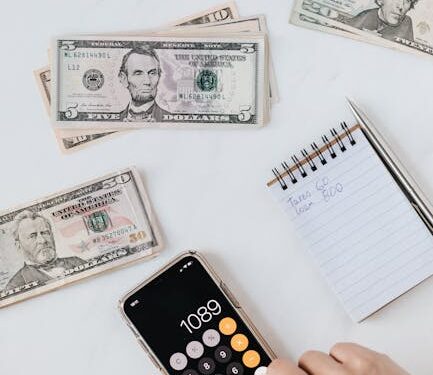Unlocking the Secrets to Escaping Debt Fast
Introduction
In today’s economy, getting into debt is easy, but escaping it can often seem like a distant dream. Whether it’s credit card bills, student loans, or mortgages, the shadow of debt can loom large, impacting everything from your daily peace of mind to your long-term financial health. However, there are effective strategies to break free from this cycle faster than you might think. In this comprehensive guide, we’ll explore actionable steps to escaping debt quickly, bolstering your financial independence.
Understanding Your Debt
What Types of Debt Are There?
Debt can generally be classified as either good debt or bad debt. Good debt is an investment that will grow in value or generate long-term income, like a mortgage or student loans. On the other hand, bad debt, such as credit card debt or high-interest personal loans, typically depreciates in value and does nothing but cost you money.
Assessing Your Financial Situation
Before you can tackle your debt, it’s critical to have a complete picture of what you owe. List all your debts, including creditor’s name, balance, interest rate, and monthly payments. Tools like debt calculators or spreadsheets can be invaluable here.
Strategies to Pay Off Debt Quickly
Snowball vs. Avalanche Methods
To eliminate debts efficiently, consider the Debt Snowball or Debt Avalanche methods:
- Debt Snowball: Pay off debts from smallest to largest balance, gaining momentum as each balance is paid off.
- Debt Avalanche: Focus on debts with the highest interest rates first, potentially saving you more money in interest over time.
Creating a Foolproof Budget
Develop a budget that prioritizes debt repayment. Track your income and expenses, look for areas to cut back, and apply the extra money to your debt. Budgeting apps can help automate some of these tasks.
Negotiating with Creditors
Sometimes, negotiating lower interest rates with your creditors or seeking a debt settlement is possible. This can lead to significant savings, especially if you’re facing financial hardship.
Consider Debt Consolidation
Debt consolidation involves taking out a new loan to pay off multiple debts, simplifying your payments and potentially securing a lower interest rate. This is particularly effective for credit card debts with high interest rates.
Additional Tips for Debt Reduction
Increasing Your Income
Consider side hustles, overtime, or part-time jobs. Any additional income should be directed towards your debt to accelerate your escape from it.
Implementing a Saving Plan
Establish a modest emergency fund to prevent falling back into debt due to unexpected expenses. Even a small fund can be a buffer from needing to borrow in the future.
Automating Savings and Payments
Automation ensures that you never miss a payment and keeps your savings on track. This can help build your emergency fund or contribute to debt repayment without needing continuous active management.
Staying Motivated and Informed
Paying off debt can be a long journey. Stay motivated by setting short-term goals and celebrating when you achieve them. Keep learning about personal finance management to strengthen your financial knowledge.
Common Questions About Escaping Debt
How Quickly Can I Realistically Pay Off My Debt?
The timeframe to pay off debt depends on your total debt, interest rates, personal income, and how aggressively you can budget and save. Generally, focused and disciplined efforts can lead to noticeable reductions in debt within a couple of years.
Is It Bad To Have Any Debt?
Not necessarily. Managed wisely, some debts, like those for education or mortgages, can be investments in your future. However, high-interest consumer debt should be handled as swiftly as possible.
What should I do if I feel overwhelmed by my debt?
If the burden of debt feels overwhelming, consider speaking with a financial advisor or credit counselor. Non-profit counseling services can offer guidance on debt management plans, budgeting, and even negotiating with creditors.
Conclusion
Escaping debt is not just about paying off what you owe; it’s about reasserting control over your financial life. By understanding your debts, choosing the right repayment strategy, and rigorously managing your budget, you can accelerate the journey to financial freedom. Remember, the path out of debt is a marathon, not a sprint. Stick to your plan, stay informed, and adjust as needed to ensure that you’re always moving forward toward a debt-free future.

























































